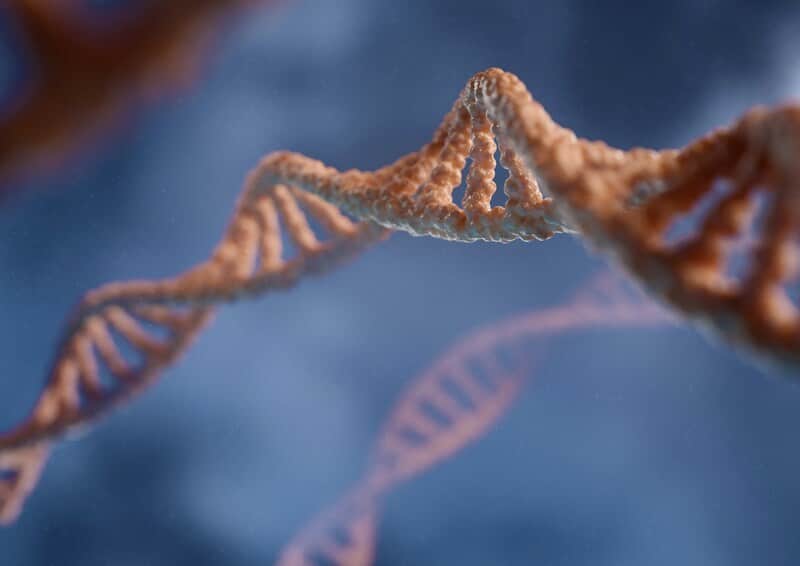Genetic disorders can cause various health problems that affect your daily life. You develop these disorders when certain mutations alter the way your genes function. However, being affected by these genetic mutations doesn’t necessarily mean you’ll get a disease. Indeed, a genetic disorder’s impact on your health mostly depends on the severity and type of genetic mutations you have.
Gene Mutations
The mutations causing genetic disorders are called pathogenic variants. Your genes consist of DNA, which contains instructions that dictate cell function and determine your traits. Furthermore, one-half of your genes are inherited by your biological mother, while the other half comes from your biological father. Since your genes were inherited, you can get mutations from either or both parents.
Additionally, you may get these mutations due to problems within your DNA, which may cause these disorders. Moreover, you can exhibit symptoms of a genetic disorder either at birth or later in your life. What’s more? The severity and timing of genetic disorders depend on the type of gene affected by these mutations. To protect yourself, you should seek early intervention for treatment if you suspect that you may have these genetic disorders.
Types of Genetic Disorders
There are several types of genetic disorders and they’re categorized based on what causes them. For instance, you can struggle with one of the following types: chromosomal, complex (multifactorial), or monogenic genetic disorders. The age of onset, symptoms, and severity determine the type of genetic disorder that you may get. While chromosomal and monogenic genetic disorders have clear causes, multifactorial genetic disorders are more complex.
You may exhibit different symptoms of a genetic disorder than someone else as they can affect people differently. Not only can the type of gene mutation cause various health concerns, but chromosomal abnormalities play a part in how severe these disorders can be.
Having chromosomal genetic disorders affects chromosomes or the structure containing DNA. Typically, this type arises when you have extra or are missing chromosome material. Complex or multifactorial genetic disorders occur when you have these mutations along with exposure to certain environmental factors including medication, tobacco, or alcohol. In contrast to the other types, monogenic genetic disorders happen due to single gene mutations.
Rare Genetic Diseases

Unfortunately, genetic disorders can make you susceptible to rare diseases that are likely to affect less than 200 U.S. citizens. Ultimately, it’s estimated that there are around 7,000 rare genetic illnesses in total. Of these rare diseases, many are known to have genetic causes. Some examples of these rare genetic disorders consist of adrenoleukodystrophy (ALD), Usher syndrome, mitochondrial diseases, Ehlers-Danlos syndrome, and AA amyloidosis.
However, due to their varied symptoms and rarity, you may struggle with getting a diagnosis. To remedy this ongoing problem, researchers are still looking to gain an understanding of the underlying causes of these genetic disorders to improve treatments. By knowing how DNA and genes function, researchers may figure out the exact causes of these rare diseases.
Causes and Risk Factors
Overall, your DNA provides instructions to produce proteins for the body to maintain good health. Once a genetic mutation occurs, these instructions are disrupted, causing you to miss or have malfunctioning proteins. As a result, your tissues and cells lose their normal functioning. Likewise, environmental factors or mutagens like exposure to radiation or the sun’s ultraviolet (UV) rays may contribute to these genetic mutations.
Genetic disorders come with various symptoms and are influenced by the disorder type, severity, and the organs impacted. Mainly, you may experience issues, such as sudden behavioral changes, breathing problems, cognitive deficits, and developmental delays. Eating and digestive problems can also arise and you may struggle with processing nutrients or swallowing.
Besides psychological issues, you may get physical abnormalities in the limbs or face like cleft lip or missing fingers. Muscle weakness or stiffness may limit mobility or give you a specific movement disorder. Lastly, you may develop neurological problems including stroke or seizures. In certain cases, genetic disorders may cause hearing or vision loss and poor growth.
Types of Genetic Testing
You should seek genetic counseling if genetic disorders run in your family as they can provide the best genetic testing tailored to your needs. In particular, you can see if you carry mutations that cause other health conditions with lab tests. If you plan to start a family, you should get a DNA test to determine if or which genetic disorder is present.
Carrier testing, for example, can identify whether you or your loved one carry gene mutations that can cause this disorder. Even if you don’t have genetic disorders in your family history, it’s still recommended that you get a blood test especially when pregnant. This blood test, known as prenatal screening, helps a pregnant person assess the chances of their fetus sharing a similar chromosomal condition.
With prenatal diagnostic testing like amniocentesis, you can see if the fetus has a higher risk of developing certain genetic disorders. Likewise, you can seek a newborn screening to find these disorders within a baby. This early intervention gives you the best chance of improving treatment for your children if they’re affected. Ultimately, you gain insight into managing genetic disorders and possible health risks by seeking genetic testing.
Final Thoughts
Sadly, preventing genetic disorders proves to be a challenge, but you can benefit from genetic testing and counseling. Living with a genetic disorder may require frequent visits with a mental health professional to gain valuable information and proper treatment. Not only that but you should turn to family and friends for more support and assistance.
Disclaimer: This article is intended simply to provide information. It does not replace the medical advice of a physician or other medical professional. Please speak with your doctor or therapist if you have any questions or concerns.









